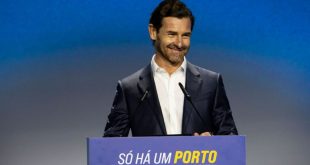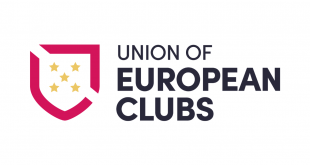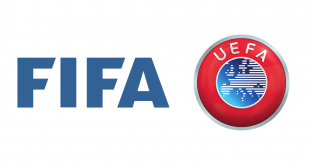 An expert panel and sustainability advocates discussed the potential benefits of shifting from a linear to circular consumption model to support UEFA’s updated Circular Economy Guidelines launch.
An expert panel and sustainability advocates discussed the potential benefits of shifting from a linear to circular consumption model to support UEFA’s updated Circular Economy Guidelines launch.
An expert panel and sustainability advocates discussed the potential benefits of shifting from a linear to circular consumption model to support UEFA’s updated Circular Economy Guidelines launch.
Transitioning from a linear to a circular consumption model holds great potential for European football, according to experts at the launch of UEFA’s updated Circular Economy Guidelines.
By minimising material waste in football, there are opportunities for economic gains, enhanced collaboration and increased engagement with important stakeholders in-cluding players and fans.
UEFA marked the unveiling of the guidelines by hosting an event at its HQ in Nyon, moderated by Sky Sports presenter David Garrido.
At the heart of the event was a panel, titled ‘Circular economy challenges, innovations and practices’, featuring Diane Caldwell (player for FC Zürich Frauen and the Republic of Ireland, and We Play Green representative), Philipp Hessberger (Advisor to the Board, Eintracht Frankfurt Fussball AG), Viviane Gut (Senior Director, Sustainability Direction, adidas), Joanna Czutkowna (Director, I Went Shopping Today) and Thomas Klar (Head of Brand Operations, UEFA).
Michele Uva, UEFA’s Director of Social and Environmental Sustainability, emphasised the need for circular economy principles to be integrated into the day-to-day operations of football, not just limited to events. He also stressed the collective responsibility of UEFA, National Associations, clubs and leagues to act as“accelerators in this transition.
Michele Uva, UEFA director, Social and Environmental Sustainability, said, “Circular economy in football is a new and fascinating concept, and these UEFA guidelines offer a practical approach to embed it in our game. We have developed the 4R framework as a guiding principle and applied it to football, in collaboration with Na-tional Associations, the ECA, clubs and commercial partners.”
In the presence of UEFA vice-president Laura McAllister, members of the UEFA Fair Play and Social Responsibility Committee and various representatives from national associations and European football stakeholders, Filippo Veglio, UEFA senior expert in social & environmental sustainability, and Vincent Reulet, environmental sustainability expert for UEFA, presented an overview of the guidelines, which focus on apparel, equipment, event materials, energy and water. The document offers a practical framework for national associations, which was discussed at the event with subject matter experts and sustainability advocates.
Diane Caldwell, professional footballer for FC Zürich Frauen and the Republic of Ireland, raised concerns about excessive garment production in football, noting instances where team-mates discard barely used items. She emphasised the urgent need for football to embrace a more sustainable approach, given the alarming statistics: every second, a truckload of textiles is incinerated or sent to landfill, with only 1% being recycled.
Diane Caldwell, FC Zürich Frauen and the Republic of Ireland, and We Play Green ambassador, said, “Can we change that mentality? Can we reuse it? Can we upcycle it? With We Play Green we have a new initiative where we pass materials and equipment on to younger generations.”
Senior director of Sustainability Direction at adidas, Viviane Gut, acknowledged that while using recycled polyester isn’t flawless, approximately 96% of the kits they produce are made from recycled materials. She emphasised the importance of testing and piloting initiatives in the sports apparel industry to transition towards a more circular consumption and production model.
adidas’ efforts to supply recycled kits and products for volunteers at EURO 2024 in Germany offer a chance for these volunteers to promote this shift in mindset to fans nationwide.
Viviane Gut, senior director of Sustainability Direction, adidas, said, “It can be overwhelming, but everyone in football can inform themselves through guidelines like this one and then focus on two or three things that will make the biggest impact. Everyone has to get started somewhere.”
EURO 2024 was also highlighted as an opportunity to enhance circularity in event mate-rials by Thomas Klar, head of Brand Operations at UEFA. The EURO 2024 ESG strategy commits to using recycled materials and collaborating with local companies to reduce transportation impact.
Klar emphasised the value of the UEFA Supplier Code in ensuring suppliers adhere to socially and environmentally responsible practices. He urged other football stakeholders to “be persistent” in finding sustainable solutions.
Thomas Klar, head of Brand Operations, UEFA, said, “There are solutions out there that are not that much more expensive – or even as expensive – as non-sustainable materials. You just have to find them. It takes a bit of time, but they are out there.”
Philipp Hessberger, advisor to the board at Eintracht Frankfurt, supported the importance of measuring environmental impact, especially in energy and water usage, to establish specific reduction targets.
Hessberger noted that a robust ESG approach, along with incorporating circular economy principles, provided the club a competitive edge in securing sponsors that prioritise ESG criteria in their value chain. It also demonstrated responsibility to its 130,000 members.
Philipp Hessberger, advisor to the board, Eintracht Frankfurt, said, “If we don’t have an ESG strategy in place, we don’t fulfil the criteria of our partners and we lose revenue. We can’t put that lost revenue into the team and we lose competitiveness.”
 Arunava about Football A look at football & the world through my eyes!
Arunava about Football A look at football & the world through my eyes!



